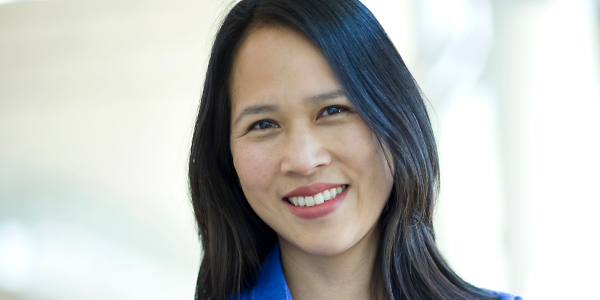MIT GOV/LAB research on Ebola outbreak shows why honest, trusted communication is key to stemming Covid-19

Lily Tsai; Professor of Political Science, Head, MIT GOV/LAB; photo by Stuart Darsch
"Governments need to go out of their way to keep the public apprised of plans and the scientific rationale behind them. They need to make it clear through concrete actions that science and not politics are driving decision making and action. Otherwise, people may be slow to comply with necessary requests if they suspect ulterior motives."
— Commentary at Forbes
Research and Perspectives for the Pandemic
Main Page | Healthcare
How canvassing by trusted people slowed an epidemic
Study finds that in Liberia, when many did not trust the goverment, community volunteers limited damage from Ebola by distributing information to neighbors.
Story at MIT News
EXCERPT | FORBES
The 2014 Ebola Outbreak Shows Why Open, Honest Communication Is Vital For Containing COVID-19 Coronavirus
"Take a look at an evaluation recently published in the journal Comparative Political Studies. This evaluation showed how efforts to increase communication between the government and the people helped in the battle against the deadly Ebola virus.
In the publication, Lily L. Tsai, PhD, Ford Professor of Political Science at MIT, Benjamin S. Morse, a PhD candidate in Political Science at MIT, and Robert A. Blair, PhD, an Assistant Professor of Political Science at Brown University described how many Liberians already didn’t trust their government prior to the 2014–2015 Ebola outbreak.
According to the authors, this mistrust arose from a history of government corruption, abuse, autocratic rule, and repression...In fact, as the authors stated, many Liberians actually believed that “Ebola was a ploy by the government to generate more aid funding.” Yes, apparently people were saying that the whole Ebola outbreak was a political hoax and that many citizens believed authorities were willing to harm and even kill their own citizens for personal gain.
When there isn’t a health emergency, you may not necessarily immediately see the damage of spewing anti-science rhetoric, neglecting the value of real health professionals, and eroding relationships between health professionals and patients. But as with all relationships, stress and crisis have a way of making you pay for everything that you didn’t do to positively grow the relationship all along."
Suggested links
Lily Tsai's MIT webpage
MIT GOV/LAB
Innovation in citizen engagement and government responsiveness